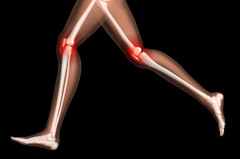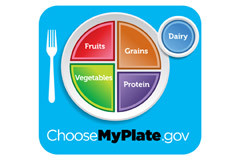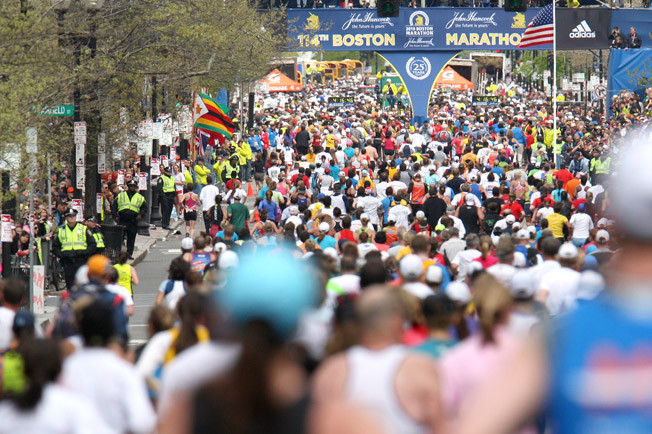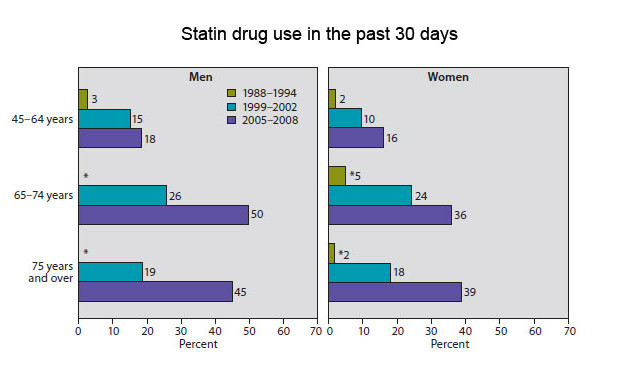
5 timeless habits for better health

What are the symptoms of prostate cancer?

Is your breakfast cereal healthy?

When pain signals an emergency: Symptoms you should never ignore

Does exercise give you energy?

Acupuncture for pain relief: How it works and what to expect

How to avoid jet lag: Tips for staying alert when you travel

Biofeedback therapy: How it works and how it can help relieve pain

Best vitamins and minerals for energy

Should you take probiotics with antibiotics?
Harvard Health Blog
Read posts from experts at Harvard Health Publishing covering a variety of health topics and perspectives on medical news.
Articles
Some “natural” therapies may be safe, effective for mental health
A symposium on complementary and alternative medicine put on by Massachusetts General Hospital’s Mood and Anxiety Disorders Institute indicates that a handful of so-called natural supplements may be worth trying against depression and other mood disorders. The symposium focused on several for which there is good evidence. These include omega-3 fats, St. John’s wort, maca root, and valerian. Just because these remedies come from plants and animals doesn’t automatically mean they are safe. Herbal remedies have unwanted side effects and can interact with medications just like antidepressants and other drugs do. Talk with your doctor before trying any alternative approach, especially if you take any medications.
Hospitals mislead patients about robotic surgery
Johns Hopkins researchers found that 40% of hospital Web sites promote robot-assisted surgery, even though little evidence shows it’s better than conventional methods.
Taking the pain out of runner’s knee
Patellofemoral pain syndrome, also known as runner’s knee, makes it painful to walk up and down stairs, get out of the car, and, of course, run. It happens when the kneecap doesn’t run smoothly up and down its track—a groove called the trochlea. Although anyone can get patellofemoral pain syndrome, it is more common in women than men—especially in mid-life women who’ve been running for many years. Strengthening the quadriceps (thigh) muscles and stretching the iliotibial band, connective tissue that runs from the knee to the hip, can help, as can cutting back on exercises or movements that put repetitive force on the knees.
Crumbling, confusing Food Pyramid replaced by a Plate
With much fanfare, the USDA launched MyPlate, a replacement for the outdated and much-maligned Food Pyramid. The colorful quarters of the plate–green for vegetables, red for fruits, orange for grains, and purple for protein–are aimed at nudging Americans away from meals dominated by meat and starch and towards meals made up mostly of plant-based foods. It offers information on portion sizes and sends the message that a balanced meal should be at least half vegetables and fruits. But it ignores important issues like what are the healthiest choices for grains, protein, and fat. Nor does it counsel Americans to avoid the sugary baked goods, breakfast cereals, and drinks, and the salty processed foods and snacks, that make up a big chunk of the average American’s daily caloric intake. In spite of its shortcomings, MyPlate is better than the old pyramids–may they rest in peace. But whether MyPlate will help stem Americans’ frightful eating habits is anyone’s guess.
Testing the Harvard 6-Week Plan for Healthy Eating: Keep it going
Two volunteers testing the new “Harvard Medical School 6-Week Plan for Healthy Eating” may have come to the end of the plan, but both are just beginning their independent journeys to a lifetime of healthy eating. Helen Hoart and Tonya Phillips talk about the goals they set for themselves, whether they achieved them, and their dietary plans for the future.
Using food to fight prostate cancer
Nutritionist Sheila Wolfson spoke about healthful eating for men who have been diagnosed with prostate cancer at the Massachusetts Prostate Cancer Coalition’s 14th annual symposium in May 2011. A good diet, she said, can boost energy and improve quality of life.
Gay men more vulnerable to drops in quality of life after prostate treatment
For the first time, a study measures the impact of prostate cancer treatment on the quality of life of gay men.
In case of zombie apocalypse, check with the CDC
Do you know how to protect yourself and your family during a zombie attack? If not, the federal Centers for Disease Control and Prevention (CDC) can help. In addition to information on how to prepare for emergencies from anthrax to wildfires, the CDC Web site has added a page on dealing with a zombie apocalypse. […]
Surprising findings on omega-3 fats, trans fats, and prostate cancer risk
A new study challenges the conventional wisdom that heart-healthy omega-3 fats from fish, walnuts, and other sources are good for the prostate and that artery-damaging trans fats are bad for it. Suzanne Rose, editor of Harvard Health’s Annual Report on Prostate Diseases, explains.
How to survive a tornado
The storms that have recently ripped through the South included dozens of tornadoes. And as the bad weather barreled north today, the National Weather Service declared a tornado watch for eastern parts South Carolina, North Carolina, Virginia, and Maryland, and warned of severe weather as far north as Boston. Strong wind from any sort of severe weather can wreak havoc, but the speed and spinning winds of a tornado are especially destructive. In most years, tornadoes kill about 60 Americans, about the same number killed by lightning strikes. But this is not going to be an average year. The death toll from the terrible storms in the South is approaching 300 and the number is climbing. Advice from the Centers for Disease Control and Prevention and the National Weather Service’s Storm Prediction Center can help you survive a tornado if one is headed your way.
Why pathologists may disagree
Some disagreements involve objective factors, such as how biopsies are done. But usually, when pathologists disagree, to comes down to interpretation and judgment, both subjective qualities.
Questions to ask about your pathology report
It should be clear by now that pathology reports vary in large part because the clinical features they analyze often require some subjective interpretation. This means it’s important to question the findings and make sure you understand them before you make any decisions about treatment. Start by studying your pathology report closely. Circle anything that […]
Harvard 6-Week Plan for Healthy Eating goes live! You can participate, too
Two volunteers are testing the new “Harvard Medical School 6-Week Plan for Healthy Eating.” This plan offers week-by-week steps to help you analyze your diet, establish goals for healthy meals and snacks, and incorporate practical changes to make your healthy diet a reality. Each week builds on what you accomplished in the previous weeks. At the end, you’ll have made important changes that can last a lifetime. Tonya Phillips and Helen Hoart share their experience from Week 1 of the 6-week plan.
Kate Middleton’s pre-royal weight loss: stress, “brideorexia,” or the Dukan Diet?
One of many hot topics about the upcoming royal wedding of Prince William of Wales and Catherine Middleton is whether Middleton has lost too much weight in preparing for the ceremony. Prevailing theories about Middleton’s presumptive weight loss include stress, “brideorexia,” and a popular French diet. Harvard Health Letter editor Peter Wehrwein discusses all three possibilities.
Stretching exercises
Because stretching cold muscles can lead to injury, it’s best to stretch after your muscles have been adequately warmed up — either at the end of your workout or after you’ve completed your warm-up. Stretching at the end of your workout can be a good way to cool down. Stretch several times a week for […]
Balance exercises
Balance plays no role in preventing prostate problems or major diseases. Still, balance is important for health. A good sense of balance can keep you steady on your feet and reduce your risk of falling. This special set of exercises can be done at any time, every day of the week or just a few […]
Exercise and prostate cancer
Some studies have suggested that more physically active men many have a lower risk of prostate cancer — or prostate cancer progression — than sedentary men. And somewhat paradoxically, exercise can combat the fatigue that strikes some prostate cancer patients during treatment.
Exercise and erectile dysfunction (ED)
Emerging scientific evidence suggests that engaging in a few hours of exercise a week — including strength training, stretching, and balance exercises — may reduce the risk of erectile dysfunction (ED).
Exercise and chronic prostatitis
Physical activity could be a valid treatment option for men with chronic prostatitis who have not found relief through medication or other measures.
Exercise and benign prostatic hyperplasia (BPH)
Researchers have found an inverse relationship between physical activity and BPH syptoms: simply put, men who are more physically active are less likely to suffer from symptoms of an enlarged prostate such as frequent urination, urgency, and a weak urinary stream.
Belly fat is the shape of cardiovascular risk
Extra fat that accumulates around the abdomen goes by many names: beer belly, spare tire, love handles, apple shape, middle-age spread, and the more technical “abdominal obesity.” No matter what the name, it is the shape of risk.
How Boston Marathon runners can avoid hitting the wall
Perhaps up to 40% of runners in tomorrow’s Boston Marathon will end up “hitting the wall,” notes Harvard Health Letter editor Peter Wehrwein. This means that their bodies have run out of the carbohydrates needed to sustain intense physical activities like long-distance running. But one Harvard/MIT student and marathon runner has developed an online tool that allows runners to calculate just how many extra calories they should get from high-carbohydrate food or drink before a marathon to avoid hitting the wall.
Statin use is up, cholesterol levels are down: Are Americans’ hearts benefiting?
The latest annual snapshot of health in America, a report called Health, United States, 2010 offers hours of browsing and food for thought for anyone interested in health trends. Harvard Health Letter editor Peter Wehrwein connects the dots between use of cholesterol-lowering statins and fewer deaths from heart disease.

5 timeless habits for better health

What are the symptoms of prostate cancer?

Is your breakfast cereal healthy?

When pain signals an emergency: Symptoms you should never ignore

Does exercise give you energy?

Acupuncture for pain relief: How it works and what to expect

How to avoid jet lag: Tips for staying alert when you travel

Biofeedback therapy: How it works and how it can help relieve pain

Best vitamins and minerals for energy

Should you take probiotics with antibiotics?
Free Healthbeat Signup
Get the latest in health news delivered to your inbox!
Sign Up















